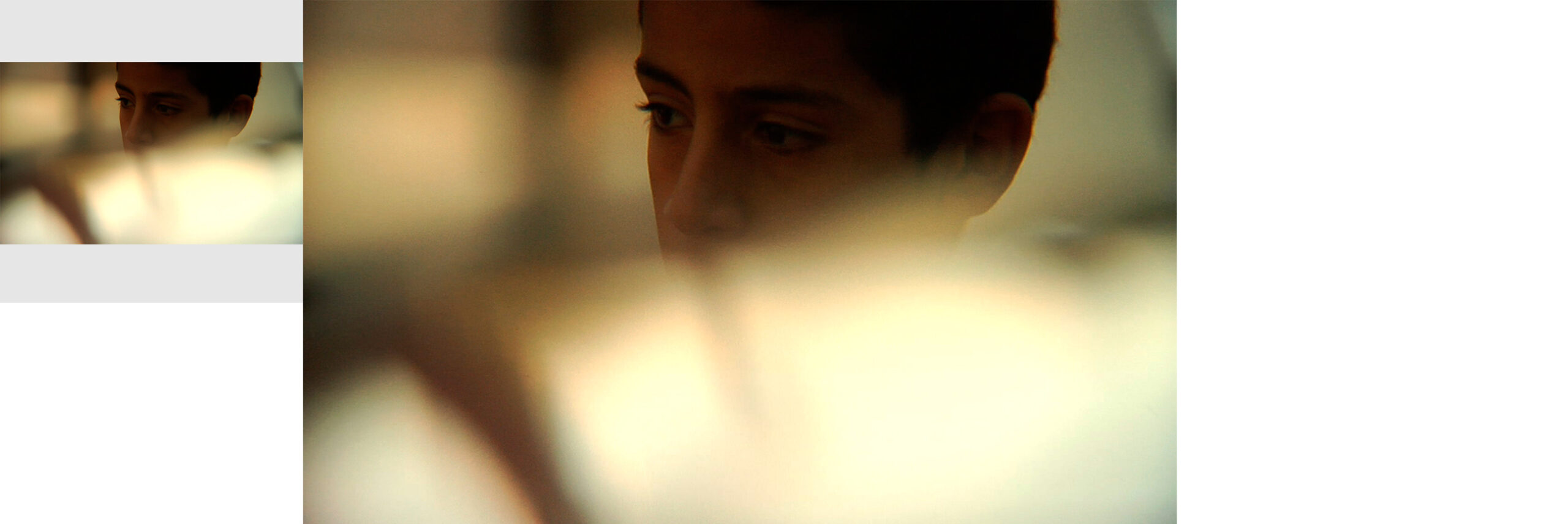
The Otolith Group: Screenings
Films
Saturday, June 2, 2018
3:00 PM–5:00 PM Free with Museum Admission
This free program celebrates the exhibition A Lost Future: The Otolith Group, which centers on their newly commissioned film about Santiniketan (“Abode of Peace”) and the school founded there by the poet and Nobel Laureate Rabindranath Tagore. In the theater watch screenings of three of The Otolith Group’s earlier films connected to India.
Otolith I, 2003, 22 min. 25 sec.
Otolith I is set in the 22nd century, when the human race is no longer able to survive on earth and is obliged to live in the agravic conditions of the International Space Station. Dr. Usha Adebaran Sagar, the future descendent of Otolith Group member Anjalika Sagar, is an exo”“anthropologist researching life on an earth that she can experience only through media archives. Otolith imagines a mutant future that simultaneously harks back to the postwar era of non-alignment so as to indicate a connection between the production of commonality in South Asia, USSR and the present.
Courtesy of The Otolith Group and LUX, London.
Otolith II, 2007, 47 min. 42 sec.
Otolith II is set in the near future and mixes fiction, archival material, and documentary footage filmed in Mumbai and Chandigarh. The film explores the affective pressure exerted upon inhabitants residing within contrasting and competing versions of the city of tomorrow. Otolith II investigates the politics of futurity in which predictive models of the master plan, the corporate scenario, and real estate speculation converge to extract labour, convert attention, and capture potential for profit.
Courtesy of The Otolith Group and LUX, London.
Otolith III, 2009, 48 min.
Otolith III takes The Alien, the unrealized screenplay of the legendary Bengali director Satyajit Ray, as its point of departure. Written in 1967, The Alien would have been the first science fiction film to be set in contemporary India. Otolith III returns to 1967 to propose an alternative trajectory in which the fictional protagonists of The Alien attempt to seize the means of production in order to create the conditions for their existence as images.
Filmed in London, Otolith III is an experiment in temporal and geographical displacement which The Otolith Group calls a premake, a remake of a film before the original.
Courtesy of The Otolith Group and LUX, London.
A Lost Future: The Otolith Group is supported by Rasika and Girish Reddy, and by public funds from the New York City Department of Cultural Affairs in partnership with the City Council. Additional support has been provided by Amita and Purnendu Chatterjee, Akhoury Foundation, and contributors to the 2018 Exhibitions Fund.

About the Artists
The Otolith Group is an award-winning collaboration founded by the artists and theorists Anjalika Sagar and Kodwo Eshun in 2002. Their work is located in the production of moving image works, audioworks, performances and installations and is characterized by an engagement with research which began with the cultural and political legacies and potentialities of Non Aligned movements, New Media, Black Study, Afrofuturism, Indofuturism and thinking speculatively with science fictions of the present, expanding the notion of the essay film against the traditions of documentary form. Their methodologies also formally incorporate post lens-based essayistic aesthetics that explore the temporal anomalies, anthropic inversions and synthetic alienation of the posthuman, the inhuman, the non-human and the anti human. The artistic focus on the essayistic and the decolonial has always gone together with an engagement with the history of futures and the futures of histories. Expanding on the work of The Otolith Group is the public platform The Otolith Collective. The Otolith Collective has approached curation as an artistic practice of building intergenerational and cross-cultural platforms. These platforms have critically engaged the work of Chris Marker, Harun Farocki, Anand Patwardhan, Etel Adnan, Black Audio Film Collective, Sue Clayton, Mani Kaul, Peter Watkins and Chimurenga in the United Kingdom, United States, and Europe. The practice of The Otolith Collective includes curating, programming, artists’ writing, workshops, publication, and teaching, together developing close readings of image and sound in contemporary society. The Otolith Group and Collective have been presented by biennials, museums, foundations, public galleries, community spaces, art schools, universities, cinemas, and informal spaces across the world. Most recently their work has been presented at the 13th Forum Expanded, Berlinale, Berlin; Savvy Contemporary, Berlin, Khiasma, Paris; The Van Abbe Museum, Eindhoven; the 13th Sharjah Biennial, Sharjah; Institute of Contemporary Art, Philadelphia; and Haus Der Kulturen de Welt, Berlin. The Otolith Group was nominated for the Turner Prize in 2010 and commissioned to create a new work for Documenta 13 in 2012.
Image Credit
The Otolith Group (est. 2002; Anjalika Sagar, b. 1968, London; Kodwo Eshun, b. 1966, London); Otolith III (still); 2009; HD video with sound, 48 min.; courtesy of The Otolith Group and LUX, London
Free with Museum Admission

